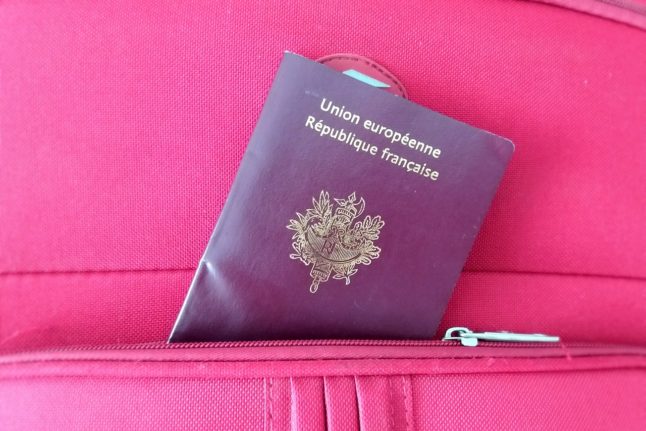What are EU/EFTA citizens entitled to in Switzerland compared to non- EU nationals?

You've probably noticed that people from the European Union, as well as Norway Iceland, and Liechtenstein (so-called EFTA countries) are treated differently in Switzerland than their counterparts from outside the EU. Why is that and what are they each entitled to?
Switzerland is not part of the EU, but belongs to the EFTA, and is bound to both blocs by various treaties, the most important of which, in terms of Swiss work permits and residency, is the Free Movement of Persons Agreement (AFMP).
Enforced from June 1st, 2002, it grants nationals of 27 EU countries (plus the three in the EFTA) an almost unlimited access to Switzerland’s labour market, as well as sweeping rights overall.
According to the Swiss government, “the right of free movement is complemented by the mutual recognition of professional qualifications, by the right to buy property, and by the coordination of social insurance systems. The same rules also apply to citizens of EFTA member states."
READ ALSO: Just how freely can EU citizens move to (and within) Switzerland?
Fewer obstacles to moving
In practice, this means that EU/EFTA nationals don’t have to have a work or residency permit before moving to Switzerland (as is the case with their non-European counterparts).
Instead, they can legally stay in Switzerland for up to three months while they are looking for a job.
Beyond this period, they must apply for a residence permit from the Swiss commune in which they are living.
That is a relatively simple process: they need to submit a valid identity card or passport, as well as official confirmation of employment or an employment contract.
Once that is done, they receive the B permit, allowing them to work in Switzerland for the duration of the permit’s validity, usually five years.
But that’s not the only right that Switzerland grants people from EU/EFTA states.
They are free to change jobs and move from one canton to another. Also, in case of a job loss, an EU/EFTA citizen doesn’t have to leave Switzerland immediately, but can remain in the country for at least six months to seek new employment.
However, they will have to apply for a permit as a job-seeker with the cantonal migration authorities while looking for a new position.

EU passports grant sweeping rights in Switzerland. Image by Tumisu from Pixabay
Buying property
Additionally, EU/EFTA citizens, can purchase property in Switzerland, just as as Swiss citizens do.
Last but certainly not least for those who want to remain in Switzerland long-term, while non-Europeans must live 10 years in Switzerland before switching their B permits to permanent-status C permits, this period is five years for the EU / EFTA citizens. (The only exception made for the former group are American and Canadian nationals, who can also apply after five continuous years of residency).
The only two areas where EU/EFTA citizens are not totally equal to Swiss nationals is under the law which requires employers to privilege the Swiss for any vacant positions. Only when no candidates with Swiss nationality are found, can EU/EFTA citizens be offered the job.
What about those from outside the EU/EFTA?
Nationalities from countries outside of these blocs have by far fewer privileges — not only in terms of being allowed to live and work in Switzerland, but also when it comes to remaining in the country after a job loss, or moving freely from one canton to another.
Rules and procedures are more complicated for people from outside the EU, often known as 'third-country nationals'.
For instance, they have more hurdles to overcome in terms of work permits.
The reason is that permits for this group of foreigners are subject to quotas and strict rules.
According to the State Secretariat for Migration (SEM), "admission of third-state nationals to the Swiss labour market is only granted if it is in the interests of Switzerland and the Swiss economy as a whole."
This means that permits/visas will be granted only to highly skilled specialists who can’t be recruited from among Swiss or EU/EFTA workforce.
Also, unlike their European counterparts, they can’t freely move within Switzerland because their permits are not automatically transferred to and valid in another canton.
 A person signs a contract. Photo by Scott Graham on Unsplash
A person signs a contract. Photo by Scott Graham on Unsplash
The reason is that, as individual cantons have only a limited number of permits (quotas) for non-Europeans, and the hiring requirements are very specific (as mentioned above), it is unlikely that these people will be allowed to change cantons.
The only exception would be if the third-country national has lived in Switzerland long enough to receive a permanent residence B or C permit, in which case they can move around the country the same way as people from the EU/EFTA.
READ ALSO : Does my work permit let me move from one Swiss canton to another?
What about buying property ?
A non-EU/EFTA national with a long-term B permit is allowed to buy a home or an apartment but only as their own primary residence.
If they want to purchase a holiday apartment, they need a permit to do so — something that people from EU/EFTA are exempted from.
Are there any changes on the horizon for non-Europeans?
Yes, but only for some.
Non-EU/EFTA citizens who graduate from Swiss universities with a degree in a field suffering from a shortage of qualified professionals will be allowed to remain in Switzerland.
In March, the Council of States, Switzerland's upper house of the Federal Assembly, accepted this change to the current legislation, following the National Council’s approval of the proposal.
It is not yet known when this new rule will enter into force though.
READ ALSO: Switzerland allows non-EU university graduates to stay and work
Comments
See Also
Switzerland is not part of the EU, but belongs to the EFTA, and is bound to both blocs by various treaties, the most important of which, in terms of Swiss work permits and residency, is the Free Movement of Persons Agreement (AFMP).
Enforced from June 1st, 2002, it grants nationals of 27 EU countries (plus the three in the EFTA) an almost unlimited access to Switzerland’s labour market, as well as sweeping rights overall.
According to the Swiss government, “the right of free movement is complemented by the mutual recognition of professional qualifications, by the right to buy property, and by the coordination of social insurance systems. The same rules also apply to citizens of EFTA member states."
READ ALSO: Just how freely can EU citizens move to (and within) Switzerland?
Fewer obstacles to moving
In practice, this means that EU/EFTA nationals don’t have to have a work or residency permit before moving to Switzerland (as is the case with their non-European counterparts).
Instead, they can legally stay in Switzerland for up to three months while they are looking for a job.
Beyond this period, they must apply for a residence permit from the Swiss commune in which they are living.
That is a relatively simple process: they need to submit a valid identity card or passport, as well as official confirmation of employment or an employment contract.
Once that is done, they receive the B permit, allowing them to work in Switzerland for the duration of the permit’s validity, usually five years.
But that’s not the only right that Switzerland grants people from EU/EFTA states.
They are free to change jobs and move from one canton to another. Also, in case of a job loss, an EU/EFTA citizen doesn’t have to leave Switzerland immediately, but can remain in the country for at least six months to seek new employment.
However, they will have to apply for a permit as a job-seeker with the cantonal migration authorities while looking for a new position.

Buying property
Additionally, EU/EFTA citizens, can purchase property in Switzerland, just as as Swiss citizens do.
Last but certainly not least for those who want to remain in Switzerland long-term, while non-Europeans must live 10 years in Switzerland before switching their B permits to permanent-status C permits, this period is five years for the EU / EFTA citizens. (The only exception made for the former group are American and Canadian nationals, who can also apply after five continuous years of residency).
The only two areas where EU/EFTA citizens are not totally equal to Swiss nationals is under the law which requires employers to privilege the Swiss for any vacant positions. Only when no candidates with Swiss nationality are found, can EU/EFTA citizens be offered the job.
What about those from outside the EU/EFTA?
Nationalities from countries outside of these blocs have by far fewer privileges — not only in terms of being allowed to live and work in Switzerland, but also when it comes to remaining in the country after a job loss, or moving freely from one canton to another.
Rules and procedures are more complicated for people from outside the EU, often known as 'third-country nationals'.
For instance, they have more hurdles to overcome in terms of work permits.
The reason is that permits for this group of foreigners are subject to quotas and strict rules.
According to the State Secretariat for Migration (SEM), "admission of third-state nationals to the Swiss labour market is only granted if it is in the interests of Switzerland and the Swiss economy as a whole."
This means that permits/visas will be granted only to highly skilled specialists who can’t be recruited from among Swiss or EU/EFTA workforce.
Also, unlike their European counterparts, they can’t freely move within Switzerland because their permits are not automatically transferred to and valid in another canton.

The reason is that, as individual cantons have only a limited number of permits (quotas) for non-Europeans, and the hiring requirements are very specific (as mentioned above), it is unlikely that these people will be allowed to change cantons.
The only exception would be if the third-country national has lived in Switzerland long enough to receive a permanent residence B or C permit, in which case they can move around the country the same way as people from the EU/EFTA.
READ ALSO : Does my work permit let me move from one Swiss canton to another?
What about buying property ?
A non-EU/EFTA national with a long-term B permit is allowed to buy a home or an apartment but only as their own primary residence.
If they want to purchase a holiday apartment, they need a permit to do so — something that people from EU/EFTA are exempted from.
Are there any changes on the horizon for non-Europeans?
Yes, but only for some.
Non-EU/EFTA citizens who graduate from Swiss universities with a degree in a field suffering from a shortage of qualified professionals will be allowed to remain in Switzerland.
In March, the Council of States, Switzerland's upper house of the Federal Assembly, accepted this change to the current legislation, following the National Council’s approval of the proposal.
It is not yet known when this new rule will enter into force though.
READ ALSO: Switzerland allows non-EU university graduates to stay and work
Join the conversation in our comments section below. Share your own views and experience and if you have a question or suggestion for our journalists then email us at [email protected].
Please keep comments civil, constructive and on topic – and make sure to read our terms of use before getting involved.
Please log in here to leave a comment.